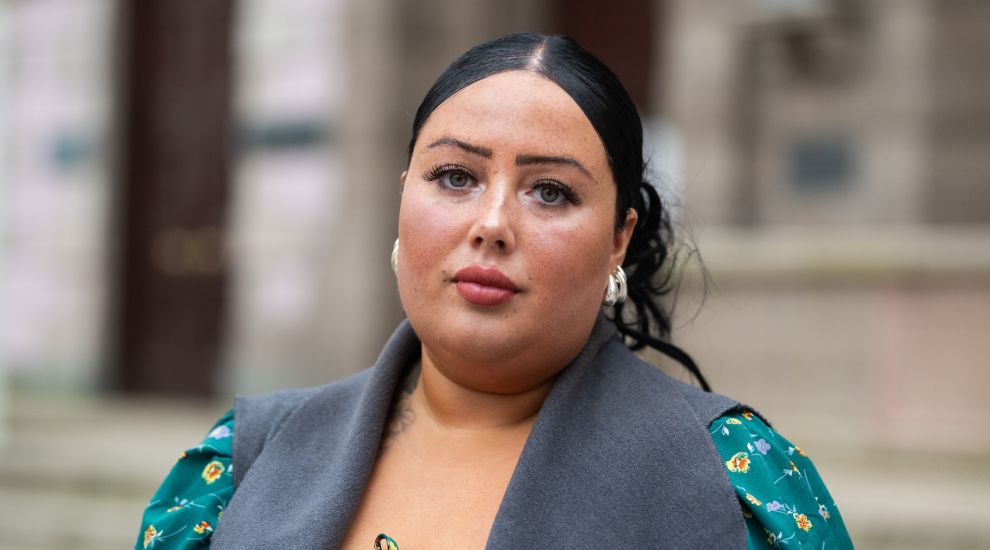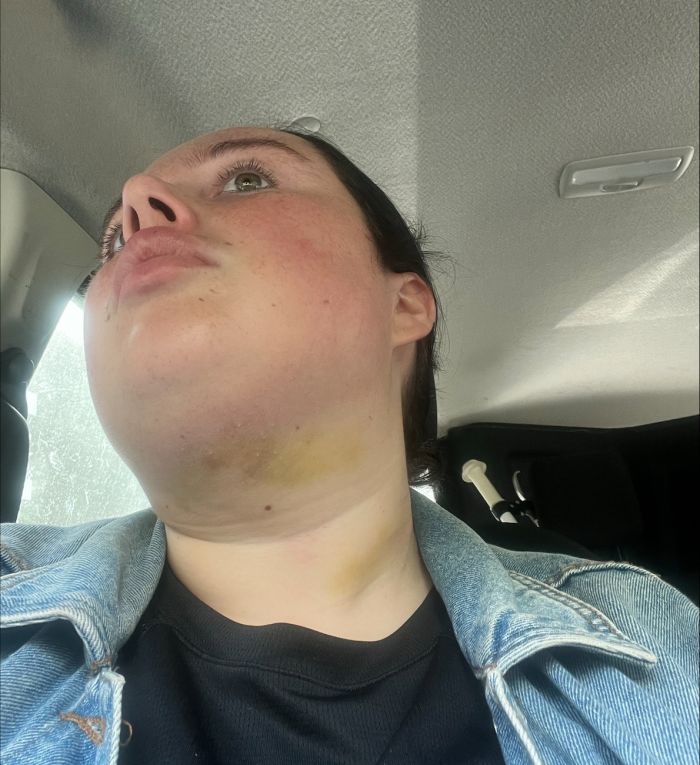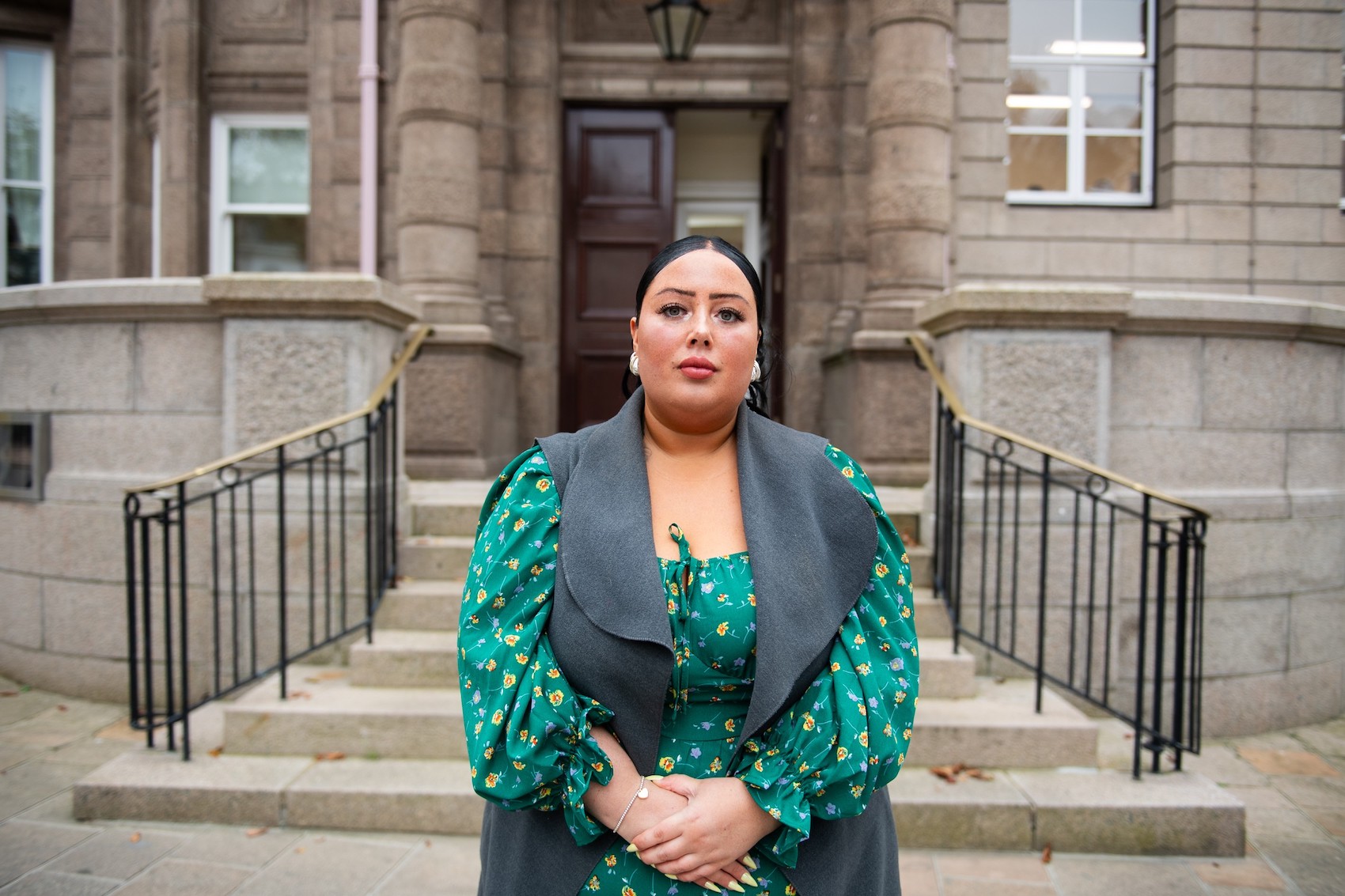


The introduction of Jersey's domestic abuse law was a "missed opportunity" to make non-fatal strangulation a standalone offence, according to the head of an independent service supporting victims of abuse.
Attempts to choke or suffocate a victim are one of the most accurate predictors of domestic homicide, according to experts – and strangulation is the second most common way for women in the UK to be murdered.
In the UK, non-fatal strangulation became a standalone offence in 2022.
In Jersey, no comparable legislation exists, and attempts to strangle are prosecuted as assaults.
Gavin Roberts (45) was convicted of a list of violent offences against two women after a nine-day trial earlier this year.
At his sentencing hearing on Friday, Roberts was described as a repeat offender who regularly got drunk and grabbed his victims around the neck – an offence for which there is no standalone offence in Jersey.
One of his victims, Suzie Mahe, wants to see this changed.

Pictured: Suzie documented the bruises she was left with after being assaulted by Gavin Roberts.
“I’m so ashamed that Jersey doesn’t have the non-fatal strangulation law," said Suzie.
"That is a person putting their hands around your neck to do harm. And in this case, when he did it, he said he wanted to kill me.
"This is the person using his hands as a weapon. If he was holding a knife to me, and he cut me with that knife, that would have been attempted murder.
"So why is this not seen as that?"
After the non-fatal strangulation, Suize was diagnosed with an upper airway dysfunction and paradoxical vocal cord dysfunction, as well as potential asthma.
Even getting the diagnosis was difficult when doctors dismissed her symptoms as psychological, she said – despite never having had asthma before.
Suzie explained: "On multiple occasions, I found I was fighting to be seen by ENT because I was like: 'My throat really hurts, my voice is hoarse.'
"I lost my voice and it felt like I was being strangled over and over again."

Pictured: Suzie waived her right to anonymity to encourage other women to speak up, and start a push for legislative change to provide more protection for victims.
After being strangled, Suzie was at higher risk of a stroke for about a year, and had she become ill, she would have needed extra support.
Blood vessels and neurological functions can all be affected by non-fatal strangulation.
"It's a very serious condition that is extremely dangerous," she explained.
"I participated and had a CT scan to have a look at all the blood vessels, and I only knew of this because of a GP was over from the UK – but the hospital didn't know that.
"If I had died from a stroke a year later, it wouldn't be associated with non-fatal strangulation."
Jersey's Domestic Abuse Law came into force last year, and perpetrators are now being regularly prosecuted – whether with domestic abuse as a standalone charge, or by using the measures provided by the law, such as domestic abuse protection orders.
But the law does not include non-fatal strangulation as a specific offence.
Detective Superintendent Alison Fossey said: "I think to have a specific offence then gives recognition to the gravity of it, that you can prosecute for that type of offence.
"It's also one of the most accurate predictors of domestic homicide. Quite often, if there's a domestic homicide, you look back in the history, there will have been a history of non-fatal strangulation."
Sarah Hamon, who is at the head of the Jersey Domestic Abuse Service, said that the introduction of the Domestic Abuse Law last year was "a missed opportunity" to make non-fatal strangulation a specific offence.
She said: "I wasn't in the role when the domestic abuse law was was being drafted. I started just about when the law came in, but it was a missed opportunity in my view.
"We've got a number of high-risk cases that are going to be caught at the moment where it's a risk factor, either in the current situation, or within that relationship.
"You don't often get bruising with non-fatal strangulation."

Pictured: Suzie wanted to share pictures of the injuries she sustained when Roberts assaulted her.
Published last year, the Violence Against Women and Girls Taskforce's report noted the danger associated with non-fatal strangulation.
The report said: "When strangulation is used in this context, it is often used to demonstrate power and control over the victim’s life or death.
"The perpetrator uses the act to demonstrate to the victim that they can end their life whenever they choose."
The taskforce recommended making non-fatal strangulation a standalone offence, noting that 99% of the general public surveyed agreed with the proposition.
Ms Hamon explained that, as part of routine questioning, police officers will ask: "Have you ever been strangled, choked, suffocated or drowned, or has anybody attempted to do that to you?"
She added that a high number of people answered 'yes'.
Ms Hamon said it is "really important" for people who were strangled to the point of unconsciousness to be checked over as soon as possible because of the potential for neurological conditions and strokes.
"I don't think we can underestimate how dangerous and frightening it can be for people," she added.
THIS WEEK: Throughout the week, Express will be focusing on the themes of non-fatal strangulation, and the support tools, such as Clare's Law, available to those suffering abuse. Sign up to our free daily news email to be the first to read.
INSIGHT: "Even after sentencing, I have a life sentence"
Former Shinzo boss jailed for 15 years for rape and assaults
Hope that case of "manipulative" restaurateur will embolden other victims
Former Shinzo owner found guilty of rape and assaults
Jury due to retire in trial of Shinzo owner accused of rape and assault
Former Shinzo boss denies alleged rape and assaults ever happened
Trial of ex-Shinzo boss accused of rape and attacks continues
Islanders affected by any of the issues raised in this report can contact any of the following:
SARC at Dewberry House provides expert independent and confidential support to victims of sexual abuse. Tel: 01534 888222.
Jersey Action Against Rape (JAAR) provide and maintain a supporting framework for survivors and their families. Confidential helpline: 01534 482800.
Freeda (formerly Jersey Women’s Refuge) offer help and support for victims of domestic abuse. Tel: 0800 7356836.
Jersey Domestic Abuse Support (JDAS) is an independent service developed to protect and support victims of domestic and sexual abuse. Tel: 01534 880505.
Victim Support offer free and confidential advice to victims of crime. Tel: 01534 440496.
Victims First Jersey is a free and independent service offering confidential support to victims and witnesses of crime. Tel: 0800 7351612.
Samaritans offer a confidential and non-judgemental listening ear to people who need to talk. Tel: 116 123 free from any phone or 0330 094 5717 (local call charges apply).
Comments
Comments on this story express the views of the commentator only, not Bailiwick Publishing. We are unable to guarantee the accuracy of any of those comments.